 SilkPeel™ Facial
SilkPeel™ FacialToner 101: What You Need To Know About The Underrated Skincare Product
Whether you’re a toner fan or a newbie to the small but mighty cleansing and prep agent, chances are you don’t know how to maximize its potential. Here’s how to change that.
While most of us know the exact purpose of each step of our skincare routine (cleanser for cleansing, moisturizer for hydrating, sunscreen for UV protection), there are some steps that are known to be beneficial for reasons that we aren’t entirely sure of. One product that definitely falls in that camp? Toner.
The silky liquid is traditionally used after cleansing and before any serums or spot treatments, but, just like the rest of your skincare routine, your toner needs to be customized to your skin type in order to be the most effective. To get the 411 on just what the multitasking fluid has to offer — including whether or not it deserves a spot in your regimen — we here at The AEDITION decided to chat with three skincare experts. Read on for everything you need to know about toner.
What Is Toner?
Think of toner like a security program: “Toner is your cleanser’s insurance,” says Natalie Aguilar, dermatological nurse and celebrity aesthetician. “It helps to remove any traces of dirt, makeup, or impurities left behind from your cleanser.” Basically, it’s an extension of your cleansing routine. “Toner is a supplemental cleansing product that’s purpose can be to either help give the skin a deeper clean or to deliver important corrective active ingredients, especially for acne,” explains Karen Fernandez, lead aesthetician at SkinSpirit.
As it relates to the latter point, toning products, which are usually ultra-lightweight, water-like liquids, play an important role in getting the complexion ready for what’s to come. “It also helps prep the skin for subsequent products such as essences, serums, oils and moisturizers,” Aguilar notes. An added bonus? “Using toner helps to tone the pores by making them appear tighter,” she says.
The Benefits of Toner
So far, we know that toners are a good way to ensure you’ve removed all the dirt and impurities from your skin, but that’s not all they are capable of. Renée Rouleau, celebrity aesthetician and owner of the eponymous skincare brand, highlights four key reasons why toner is a such an important part of skincare:
- Toners restore moisture: “When left damp on the skin before applying moisturizer, they give an instant boost of hydration,” she says. By immediately rehydrating the skin with a toner, all the products you apply on top will be able to penetrate deeper and perform better.
- Toners balance your skin’s pH: “If you use a bar of soap or foaming face wash that might dry out the skin due to their high pH balance, a toner will help counteract the dryness that occurs,” Rouleau shares.
- Toners target specific concerns: Depending on formula, they can help calm, control oil, stimulate circulation, destroy acne-causing bacteria, and give an antioxidant boost (among many other things). It all comes down to choosing the right product for your skin goals.
- Toners support the skin barrier: “By supplying the skin with essential hydration and nutrients, you repair the skin’s protective barrier,” she explains. This makes it “less sensitive” and “resistant to environmental damage.”
The net-net: “Simply put, toners make for healthy, balanced skin,” Rouleau says.
The Best Candidates for Toner
While there is a very compelling case to be made for adding a toner into your skincare routine, the jury is still out as to whether or not the prep step is a non-negotiable. “Not everyone needs a toner, as most of the cleansers we use have the capacity to break down oil and dirt,” Fernandez says. “So, toners can be supplemental and used as needed.” In her opinion, the ‘as needed’ category includes those who “use heavier mineral makeup and SPF” because “the extra cleaning power of a toner will help skin feel and be cleaner, getting more of the build-up out of the pores.”
As you might have guessed, Rouleau is a fan of toners for everyone. “Toners are misunderstood, but they are very important to use,” she maintains. “They do serve many beneficial purposes for your skin.” If you do decide that toner is for you, the next step is to find one that's suited for your skin type and concerns (more on that below).
Toners for Every Skin Type
The good news? There’s a toner for everyone. “Toners are available for every skin type,” Aguilar notes. The bad news? It’s easy to be confused about which one to use.
Fortunately, there are some general rules of thumb to keep in mind. “Those with dry, dehydrated, or reactive skin should avoid common toning agents like witch hazel or oil-reducing astringents,” Aguilar says. Instead, she suggests opting for “hydrating toners that are fragrance- and alcohol-free.” The importance of ‘alcohol-free’ cannot be understated. “Make sure it’s alcohol-free,” Rouleau emphasizes. “Toners that contain alcohol are extremely drying to the skin and should never be used.”
Another note: Now is not the time for one-size-fits-all formulas. “Avoid a ‘for all skin types’ toner,” Rouleau cautions. “There really is a toner for every need and skin type, so find the best one that works for you and add it to your skincare routine.”
With that in mind, below are five toners to try based on your skin type and concerns:
For Oily Skin: PCA SKIN Smoothing Toner
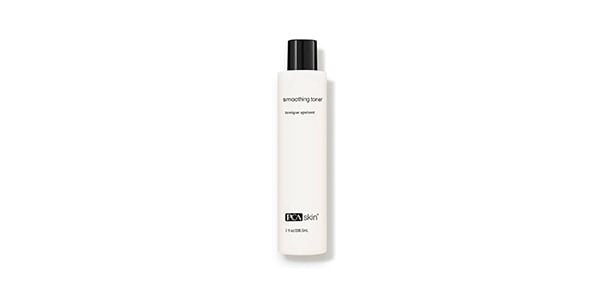
Ideal for oily skin, Aguilar notes that this toner is formulated with alpha hydroxy acids (specifically, lactic and citric) to promote clarity and smoothness, while aloe works to calm and soothe. $40, dermstore.com
For Acne-Prone Skin: Renée Rouleau Rapid Response Detox Toner
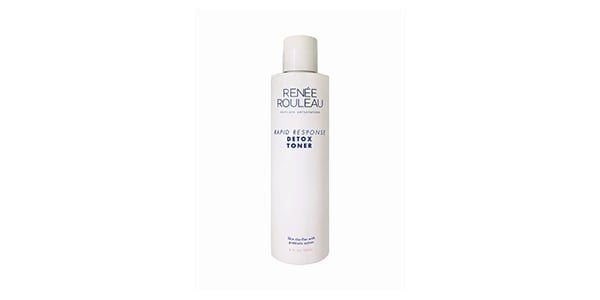
“This toner interrupts breakouts in their early stages by instantly reducing surface bacteria on the skin, while also helping skin to recover more quickly from blemishes,” Rouleau says of her formula that pairs AHAs with beta hydroxy acids to “help limit blackhead formation, clear clogged pores, and lift away discoloration.” $42.50, reneerouleau.com
For Dry Skin: Revision Skincare Soothing Facial Rinse
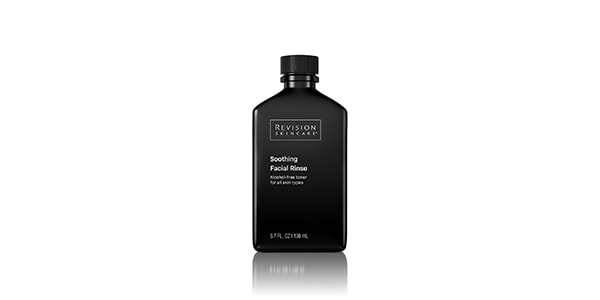
As we mentioned, those with dry skin should avoid astringent ingredients. To nourish the complexion, Fernandez likes this gentle formula that blends vitamin K with algae, Arnica montana, and grape seed extracts. It will “refresh, hydrate, and soothe — leaving no residue or irritation,” she shares. $36, revisionskincare.com
For Sensitive Skin: Biologique Recherche Lotion P50W
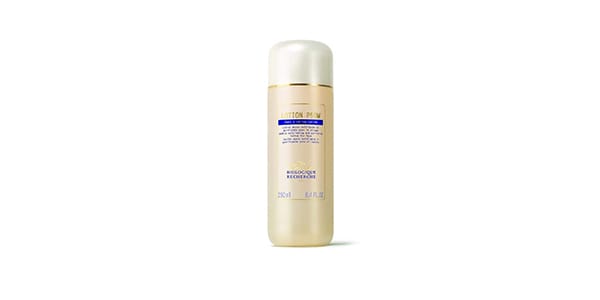
Aguilar says the best toners for reactive and/or sensitive skin are those without fragrance, alcohol, or harsh exfoliants. She likes this formula because “it is a very gentle, vitamin-enriched exfoliating lotion that purifies, mattifies, moisturizes, and helps maintain a balanced acid pH in the epidermis” — the latter of which “is usually off on sensitive skin.” $151, shopresuespa.com
For Hyperpigmentation: Skin Better Science AlphaRet Exfoliating Peel Pads
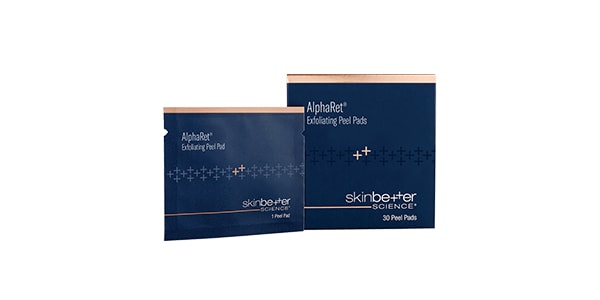
If you have uneven skin tone concerns, Fernandez suggests a hybrid toner-exfoliator. “For hyperpigmentation, if you're looking to maximize the corrective capabilities of your hydroquinone, the addition of a complexion pad will help,” she explains. “It will not only remove oils and residue, it will also lower the skin’s pH so that the products that go on after will penetrate better and work deeper.” It should be noted that these peel pads are less like a toner and more like a mini at-home peel, which Fernandez believes is the “next generation of toner.” $105 for 30 pads, store.skinbetter.com
How to Use Toner
In the grand scheme of skincare steps, toner is used after cleansing but before anything else. It is there to prep your skin for what’s to come (check out our complete guide to how to layer skincare products). “As toners serve many beneficial purposes, it’s definitely recommended to include in an everyday skincare routine,” Rouleau says. “Saturate a toning cloth and wipe across the face every day after cleansing for maximum skincare benefits.”
When applying toner, Rouleau recommends abiding by “the golden minute” rule, which refers to the 60-second window of time you have after you finish cleansing. “The rule is simple: Once you’ve cleansed, apply the rest of your skincare products within 60 seconds, starting with toner,” she explains. “Leaving your skin damp with toner and applying your serum or moisturizer immediately after will allow the active ingredients in those products to penetrate deeper within the skin, giving you even better results.”
There is no harm in using toner everyday. “When using a toner to keep skin clear, you are best to use it daily as the consistency will serve the skin well,” Fernandez says. But, if you find yourself with a pretty clear and/or well-hydrated complexion, you can use the fluid as a treatment instead (à la your favorite face mask). “Toner can be a ‘tool’ that you use when needed,” she notes. As she explains, this includes when you need a deeper clean, when you feel a zit coming up, or when you are more oily than usual during your cycle.
All products featured are independently selected by our editors, however, AEDIT may receive a commission on items purchased through our links.
More Related Articles
Related Procedures

AI Plastic Surgeon™
powered by'Try on' aesthetic procedures and instantly visualize possible results with The AI Plastic Surgeon, our patented 3D aesthetic simulator.


